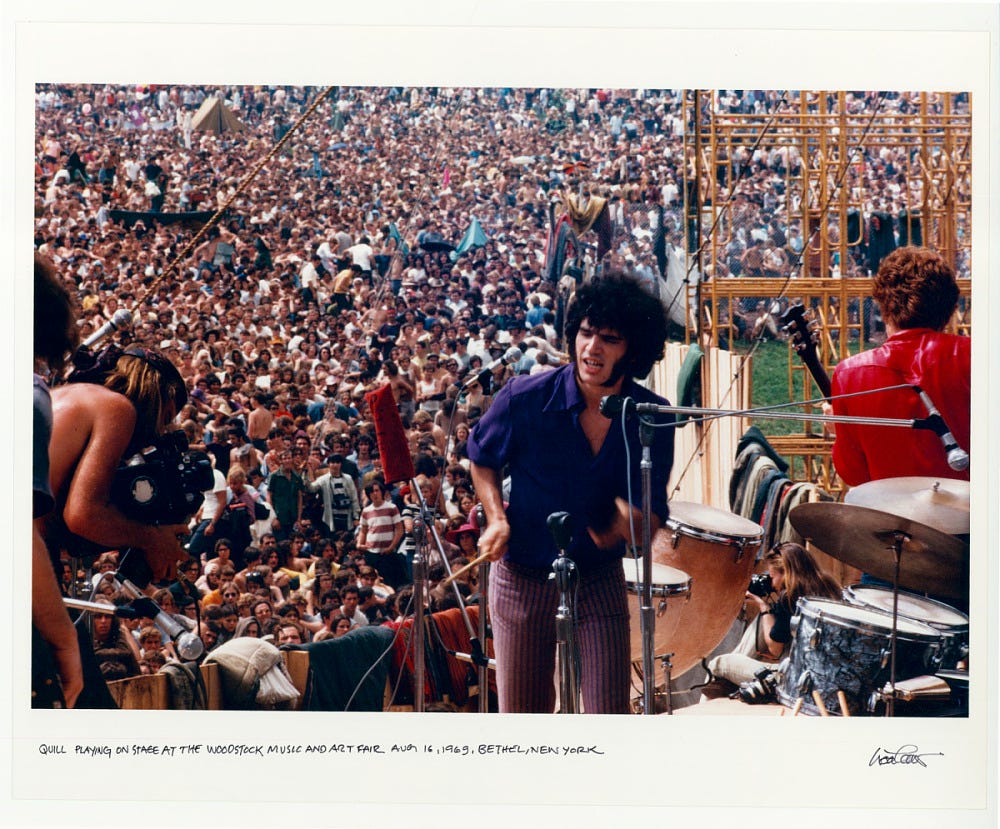Quill
Quill is a band often remembered for its participation in the historic Woodstock Music and Art Fair in 1969.
Quill is a band often remembered for its participation in the historic Woodstock Music and Art Fair in 1969, though their story within the broader tapestry of rock music is somewhat less known, partly because they didn't achieve the same level of commercial success as some of their contemporaries.
Formation and Early Years
Quill was formed in Boston, Massachusetts, in the late 1960s. The band consisted of members Dan Cole (vocals), Jon Cole (bass), Norm Rogers (drums), Phil Thayer (keyboards, saxophone, flute), and Roger North (drums). The Cole brothers were at the heart of the band, bringing their distinctive vision and energy to the group. Quill's music combined elements of rock, jazz, and blues, marked by experimental and psychedelic sounds that were emblematic of the era.
Woodstock and Beyond
Quill's performance at Woodstock in August 1969 should have been a launching pad for the band. They were among the first acts to take the stage, playing on the festival's opening day. However, unlike many other performers at the festival, Quill's appearance at Woodstock did not catapult them to fame. One reason for this was that their performance was not included in the Woodstock movie or soundtrack album, both of which played significant roles in amplifying the profiles of other artists who appeared at the festival.
Despite the setback of not being featured in the Woodstock movie or soundtrack, Quill continued to perform and make music after the festival. They were known for their energetic live performances and for incorporating a variety of instruments and sound effects into their music.
Challenges and Dissolution
Quill faced several challenges in the years following Woodstock. The band struggled to secure a record deal that would allow them to reach a wider audience. They eventually signed with Cotillion, a subsidiary of Atlantic Records, and released a self-titled album in 1970. However, the album did not achieve commercial success, and the band failed to gain the traction they needed to sustain a long-term career in the music industry.
By the early 1970s, Quill had disbanded. Members went their separate ways, pursuing different projects and careers. Despite their relatively brief time in the spotlight, Quill remains a part of Woodstock lore, remembered by those who delve deeply into the history of the festival and the myriad of acts that performed there.
Legacy
The story of Quill is a reminder of the unpredictable nature of the music industry and the fleeting nature of fame. For a brief moment, they shared the stage with some of the most iconic musicians of their generation, participating in a cultural event that continues to resonate more than half a century later. While they may not have achieved the enduring fame of some of their Woodstock peers, Quill's contribution to the festival.
